Iran FM: Agreement on JCPOA revival depends on US showing realism in practice
Iran’s Foreign Minister Hossein Amir-Abdollahian says achieving an agreement on the revival of the 2015 nuclear deal, known as the Joint Comprehensive Plan of Action (JCPOA), depends on the US showing realism in practice.
Amir-Abdollahian made the remarks in a Sunday phone call with UN Secretary General Antonio Guterres, during which the two sides discussed major regional and international developments.
“We are serious about clenching a strong and durable agreement and the negotiations [on reviving the JCPOA] are now going on in Vienna with seriousness,” Iran’s foreign minister said, adding, “Of course, the outcome of this issue depends on whether the United States wants an agreement to be reached [and] whether the US shows necessary resilience and realism in practice.”
Iran’s top diplomat added, “We have serious and real determination to achieve a strong and durable agreement and have proven that [in practice].”
Iran and the remaining parties to the JCPOA -- Russia, China, France, Britain, and Germany -- started talks in the Austrian capital of Vienna in April last year. While the parties noted progress in multiple rounds of talks, the indecisiveness shown by Washington has prevented any significant breakthrough.
Last month, the negotiations were hosted in the Qatari capital of Doha in a different format, with Tehran and Washington holding indirect talks mediated by the European Union. Those talks also failed to produce any tangible result due to the excessive demands of the US.
After several months of impasse, the Vienna talks resumed on Thursday. Expert-level negotiations are underway between Iran and the P4+1 group of countries.
Elsewhere in his remarks, Amir-Abdollahian pointed to Iran’s uninterrupted cooperation with the International Atomic Energy Agency (IAEA), saying, “However, we believe that the agency should completely resolve the remaining issues related to the Safeguards [Agreement] by distancing itself from irrelevant and nonconstructive political issues and through the technical channel.”
“Nuclear weapons have no place in the [defense] doctrine of the Islamic Republic of Iran and are in contradiction to our policies and beliefs,” the top Iranian diplomat emphasized, referring to a religious fatwa (religious decree) by Leader of the Islamic Revolution Ayatollah Seyyed Ali Khamenei declaring that the acquisition, development, and use of nuclear weapons violate Islamic principles and are therefore forbidden.
"The Leader's fatwa that prohibits the use of nuclear weapons is clear-cut and is the final say for everybody," Iran's foreign minister said.
UN wants closure of Iran’s nuclear case: Guterres
Guterres, for his part, said the UN has informed the European sides and the US that it wants the closure of Iran’s nuclear case.
The Vienna talks on the JCPOA revival are important for the UN, he added, noting that in talks with the negotiating sides, the world body has stressed the need for more compromise and flexibility.
The UN chief underlined the importance of dismantling nuclear weapons in the world and establishing a Middle East free of weapons of mass destruction.
Guterres said the world body wants efforts aimed at closing Iran's nuclear dossier, saying that he has communicated this to the European and American parties to the JCPOA.
Lead Iran, Russia negotiators meet EU coordinator
Earlier on Sunday, lead Iranian and Russian negotiators Ali Bagheri Kani and Mikhail Ulyanov held separate meetings with Enrique Mora, the European Union’s coordinator for the Vienna talks.
Bagheri Kani and Mora also had a meeting on Thursday.
Met today once again with the #EU Coordinator at the #ViennaTalks on the #JCPOA Mr. Enrique Mora. Looks like we are making progress. Let’s keep our fingers crossed. pic.twitter.com/ad87F7lSqb
— Mikhail Ulyanov (@Amb_Ulyanov) August 7, 2022
In a post on his Twitter account, Ulyanov pointed to his talks with Mora, saying, “Looks like we are making progress. Let’s keep our fingers crossed.”
"The impression is that we are moving in the right direction," Ulyanov told reporters outside of Palais Coburg hotel, which is the venue of the JCPOA revival talks.
He said the number of unresolved issues is "minimal, just three four, and some of them are almost settled," adding that some of them are related to the safeguards and economic issues.
The Russian envoy said it is possible for the negotiating parties to reach a successful conclusion "very soon, but no guarantees, as always nothing is agreed until everything is agreed."
ElBaradei condemns US threats of military action against Iran
‘No two-hour war’: Iran vows immediate retaliation to any attack
VIDEO | US warmongering threatens stability
Pezeshkian: US must end provocations if it seeks genuine diplomacy
Iran summons German ambassador over Merz’s ‘low-minded’ remarks
Iran's Armed Forces warn EU of ‘consequences’ of IRGC designation
Iran FM: EU’s blacklisting of IRGC a ‘major strategic mistake’
EU blacklists IRGC in legally flawed move irrespective of consequences


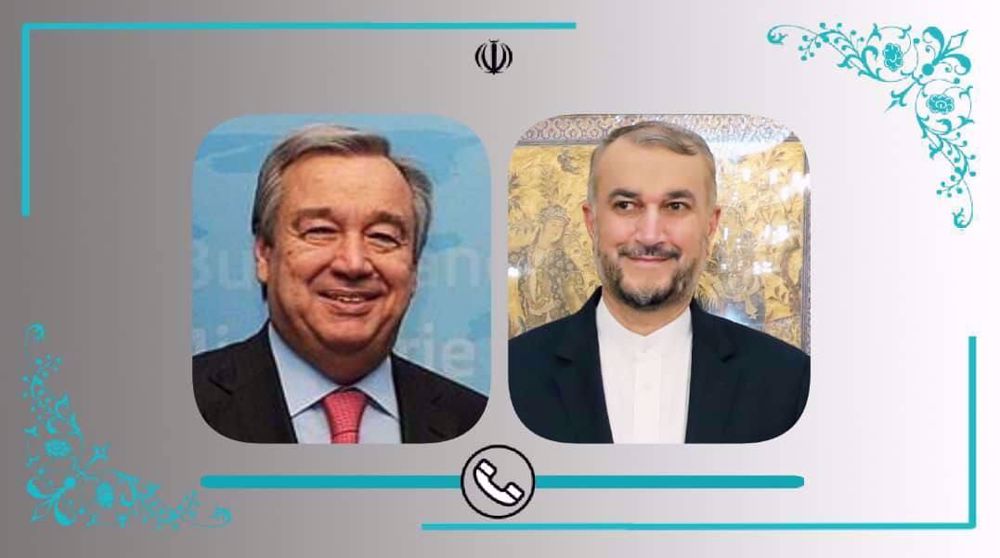
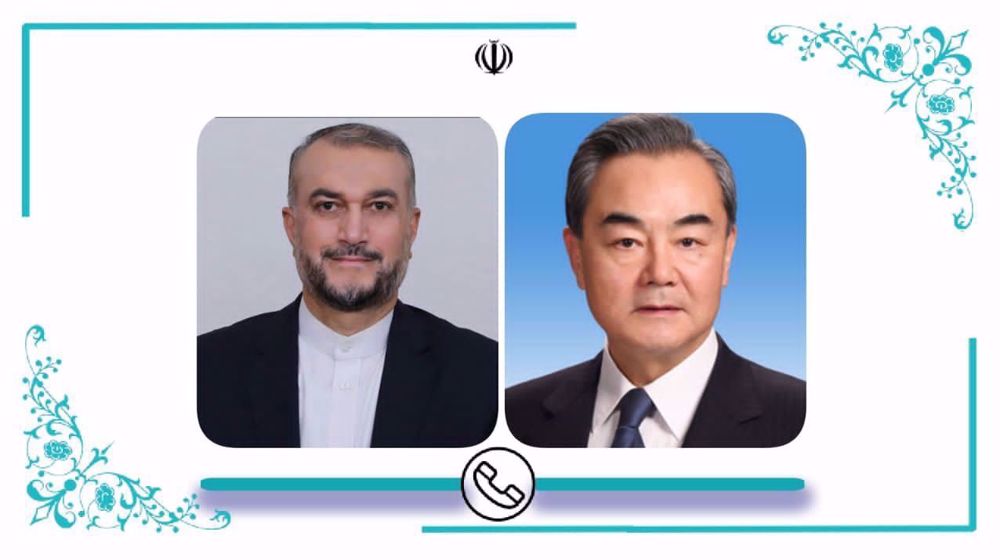
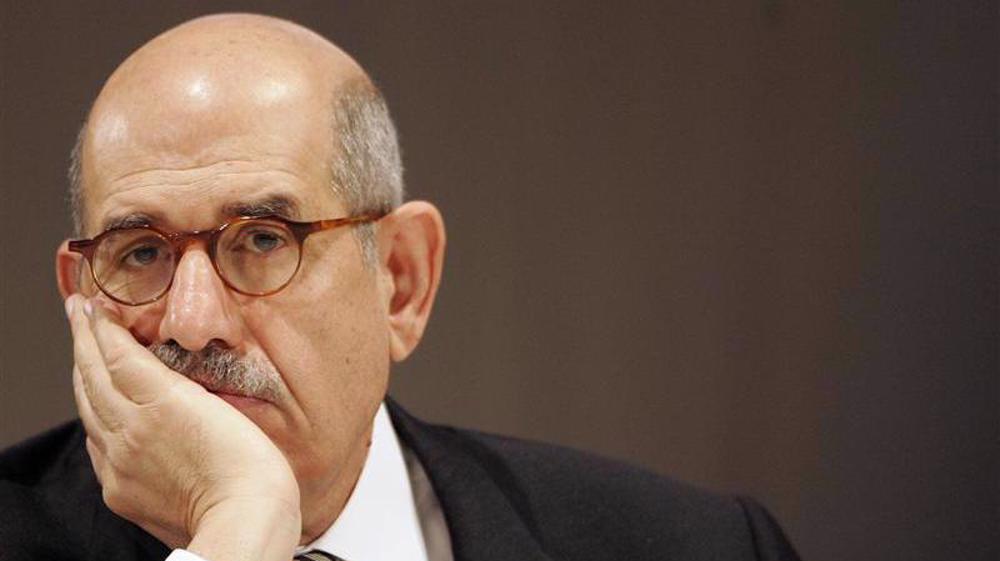

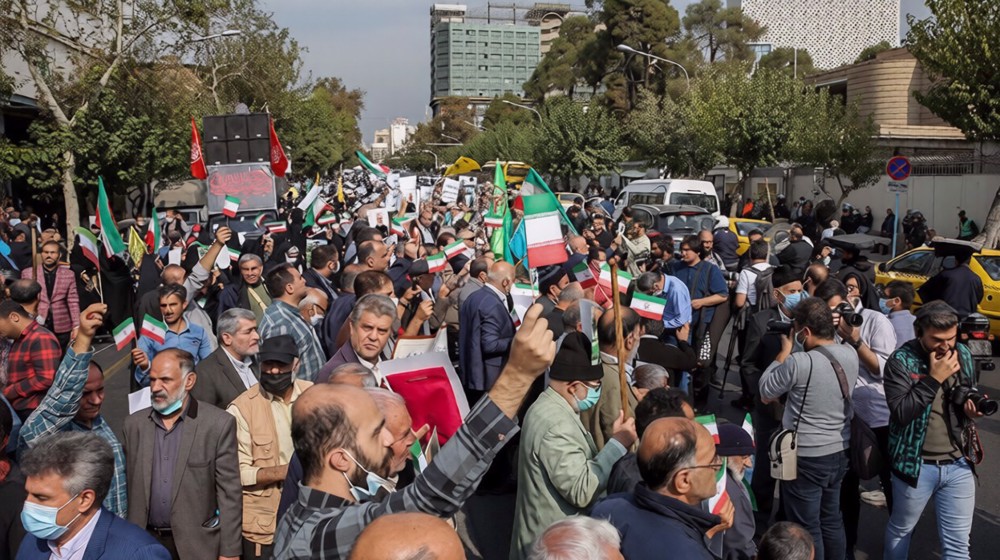



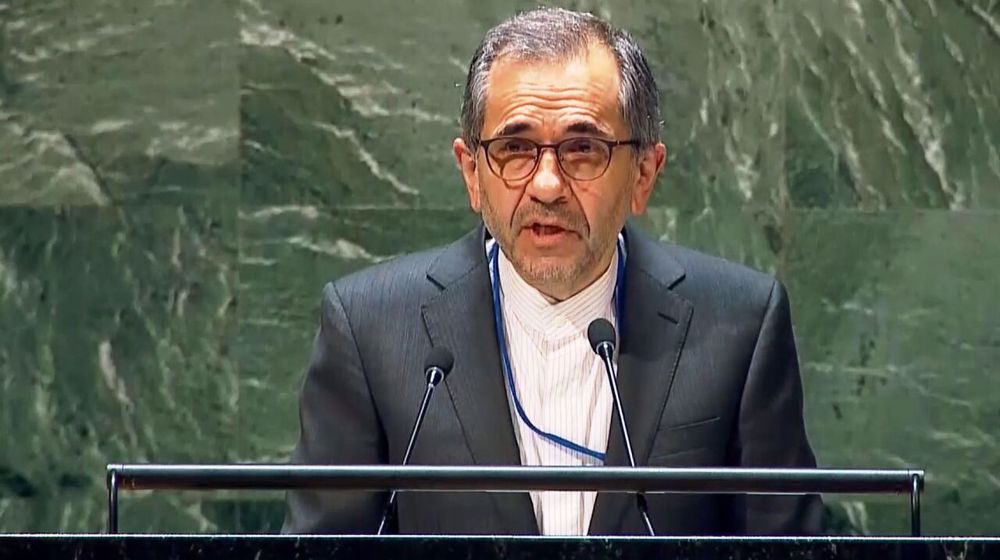
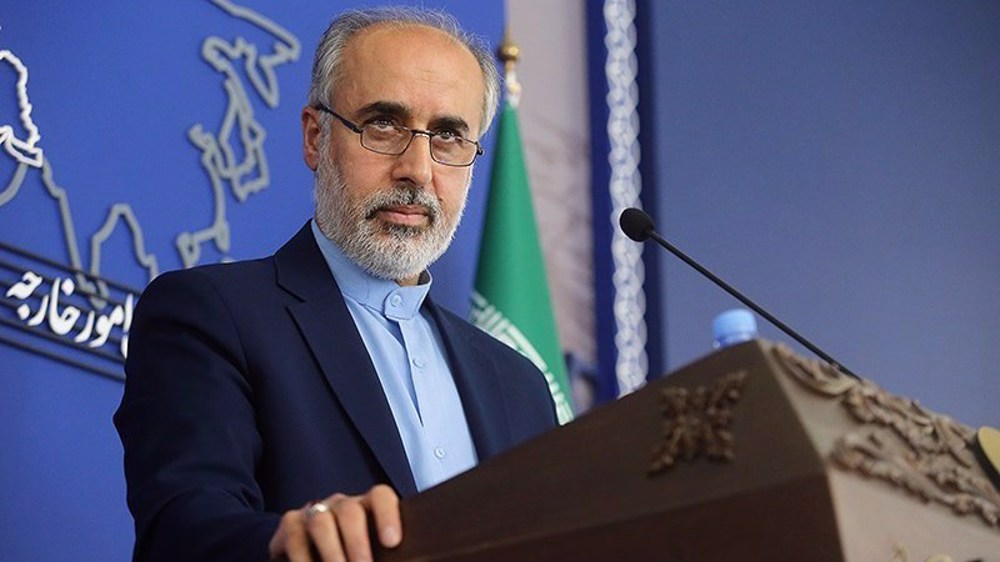
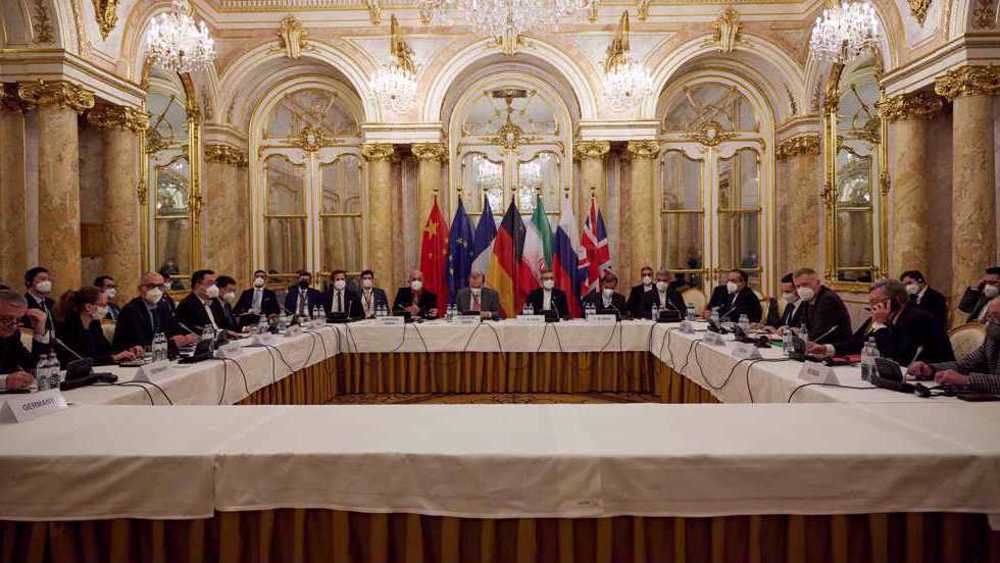
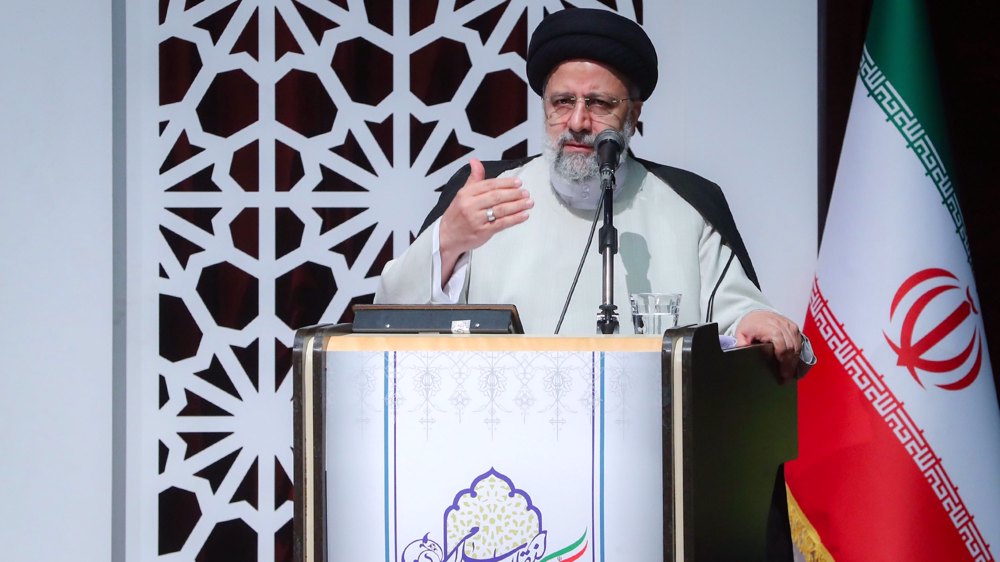

 This makes it easy to access the Press TV website
This makes it easy to access the Press TV website